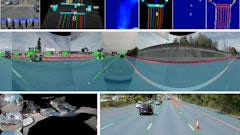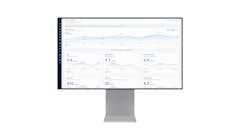
Despite 59% citing economic uncertainty, 54% of manufacturers surveyed say the current economic climate will cause them to increase investment in IT over the next 12 months, according to a study sponsored by Rackspace Technology with Dell/VMware.
Further, 65% of manufacturers cited pervasive artificial intelligence (AI) as having the highest positive impact on the business/market environment.
“These results highlight an evolution in artificial intelligence, signaling a decisive shift from the theoretical exploration of generative AI. The proliferation of pilot programs we saw in 2023 will result in active implementation in 2024,” says Jeff DeVerter, chief technology evangelist, Rackspace Technology.
Key takeaways:
- 2024 will be the year AI makes good on its promise to deliver ROI.
- 53% of manufacturers name AI as the most important technology, and list increased level of innovation(53%), enhanced products (51%), improved security (51%) and new product creation (49%) as among the benefits they’ve already realized from AI with improved security (63%) as the top expected benefit. AI initiatives gaining the most traction are computer vision (54%), custom engagement (47%) and predictive maintenance (45%).
- Edge computing, private cloud and public cloud will increase as a percentage of workloads in the coming 12 months, while data centers, colocation facilities and on mainframes decline. Manufacturers credited public cloud with reduced IT spending (59%), increasing process efficiency (49%) and faster testing for new products (45%). They credit private cloud with enhancing a personalized customer journey (52%), creating new revenue streams (55%), increase company growth (51%) and improving the ease of use for customers (44%).
- The survey identified three benefits to adopting a hybrid model throughout their organizations: improved security (52%), reduced costs (52%) and data control (47%). More respondents (44%) said data integration is the biggest challenge in adopting a hybrid cloud model. Other issues were less challenging like compliance with data sovereignty/privacy (43%), ensuring consistent security compliance (34%) and skills shortage (34%).
- The biggest challenges to implementing AI into manufacturing are lack of support infrastructure technology (40%), shortage of AI talent (36%) and measuring business value (35%).
- The majority (70%) of manufacturers are struggling to recruit and hire the kind of talent needed to handle increased cloud and AI technology. The key roles they’re struggling to fill are 5G specialists (50%), cybersecurity experts (48%), data analysts (47%) and data scientists (46%). As the need for technology increases, labor costs are increasing 46% to cover salaries, wages, bonuses, benefits, training and recruitment costs. The main reasons for the increase are high demand/low supply (54%), advancements in technology (47%) and remote work (40%).

























